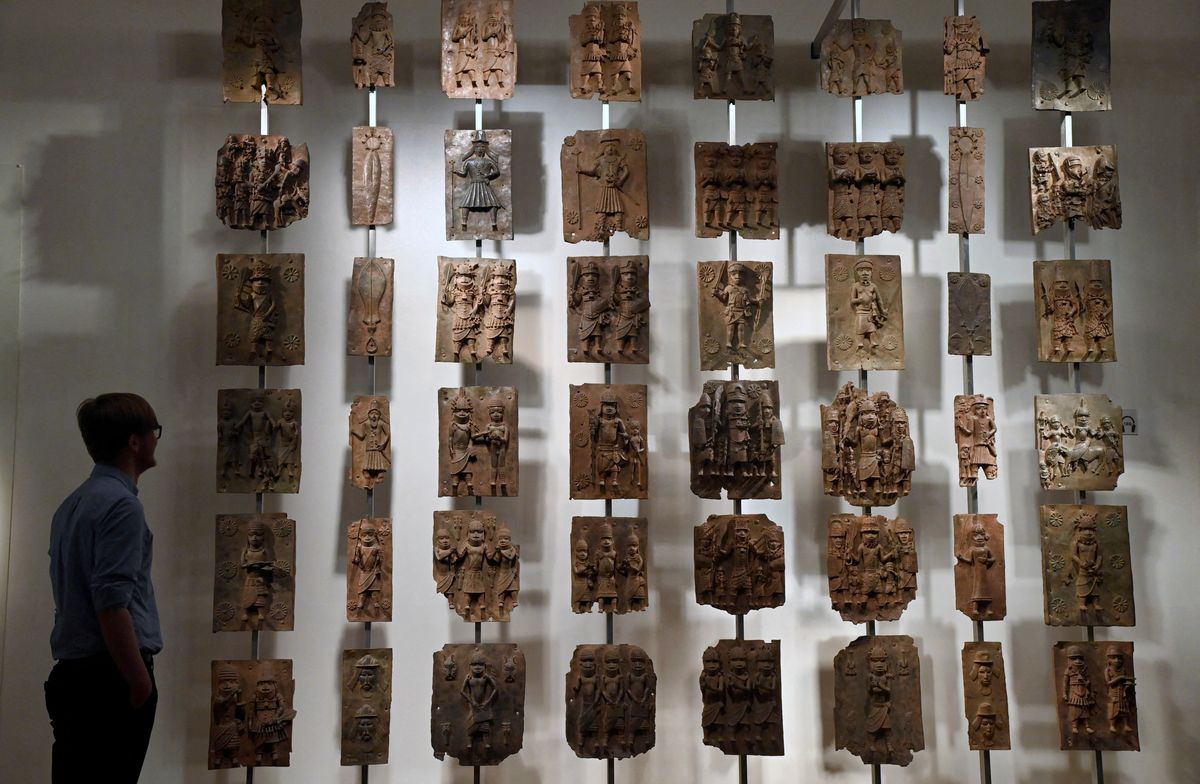Theft scandal rocks the British Museum after 2,000 items were stolen
In 2021, the British Museum was alerted that part of its collection had been stolen or was at least missing.

A few minutes every morning is all you need.
Stay up to date on the world's Headlines and Human Stories. It's fun, it's factual, it's fluff-free.
The backstory: There’s a 1963 law in the UK that makes it illegal to return items in the British Museum to the countries they came from. It’s become a big international issue, with countries like Nigeria and Greece trying to get cultural treasures back into their own hands for them to preserve and share with the rest of the world. One of the major reasons that institutions have given for keeping these artifacts is that the British Museum is able to protect and care for these objects in a way that their home countries may not be able to.
More recently: In 2021, the British Museum was alerted that part of its collection had been stolen or was at least missing. One gem dealer, Malcolm Hay, contacted the museum, saying he’d bought a gem on eBay and was worried it might be stolen, returning it to the museum in May 2021. And then, British-Danish art historian and dealer Ittai Gradel also reported seeing some strange objects up for auction on eBay that seemed to be part of a collection donated to the museum over 200 years ago in 1814.
Recently recovered emails show that Gradel told the museum that these things must’ve been stolen by someone who worked within the museum in some way. He was also vocal about how there were probably a lot more stolen things than what he’d seen. But the museum’s deputy director, Jonathan Williams, said that everything was “accounted for.” The British Museum does not have every object fully cataloged, which could make it easier for certain things to go “missing.”
The development: At the end of July, British Museum Director Hartwig Fischer announced he’d be stepping down, but it wasn’t clear why. Then in the last week, this stolen items fiasco really exploded. Last Wednesday, an employee of the museum was fired after being accused of stealing and trying to sell the items. He’s believed to have taken them from one of the museum’s storage rooms. The London police force also announced it was conducting an investigation, so there could definitely be criminal charges filed in the future.
That Friday, Fischer had to confirm his own resignation and make it effective immediately, saying that the museum hadn’t responded to the earlier alerts properly under his leadership. Deputy Director Williams also decided to leave, at least until the police investigation is over. On Saturday, the British Museum's chair of trustees, George Osborne, said that an estimate of around 2,000 items were believed to have been stolen. These missing things range from gold jewelry, semiprecious gems and crafted glass from all the way back in the 15th century BC to the 19th century AD.
Key comments:
"I will give you an estimate of around 2,000. But I have to say that's a very provisional figure," the museum's chair of trustees, George Osborne, said during an interview with BBC radio on Saturday. "We have started to recover some of the stolen items, which is a silver lining to a dark cloud.”
“Over the last few days I have been reviewing in detail the events around the thefts from the British Museum and the investigation into them,” British Museum Director Hartwig Fischer said in his resignation statement. “It is evident that the British Museum did not respond as comprehensively as it should have in response to the warnings in 2021, and to the problem that has now fully emerged. The responsibility for that failure must ultimately rest with the director.”
“One of the most insulting reasons that [the British Museum has] given [for keeping foreign cultural artifacts] is that the other countries that these items belong to would either not be able to take care of them or they are likely to be stolen,” Bell Ribeiro-Addy, a British MP and chair of the all-party parliamentary group on Afrikan reparations, said. “But you’ve got people in this country putting them on eBay.”




Comments ()